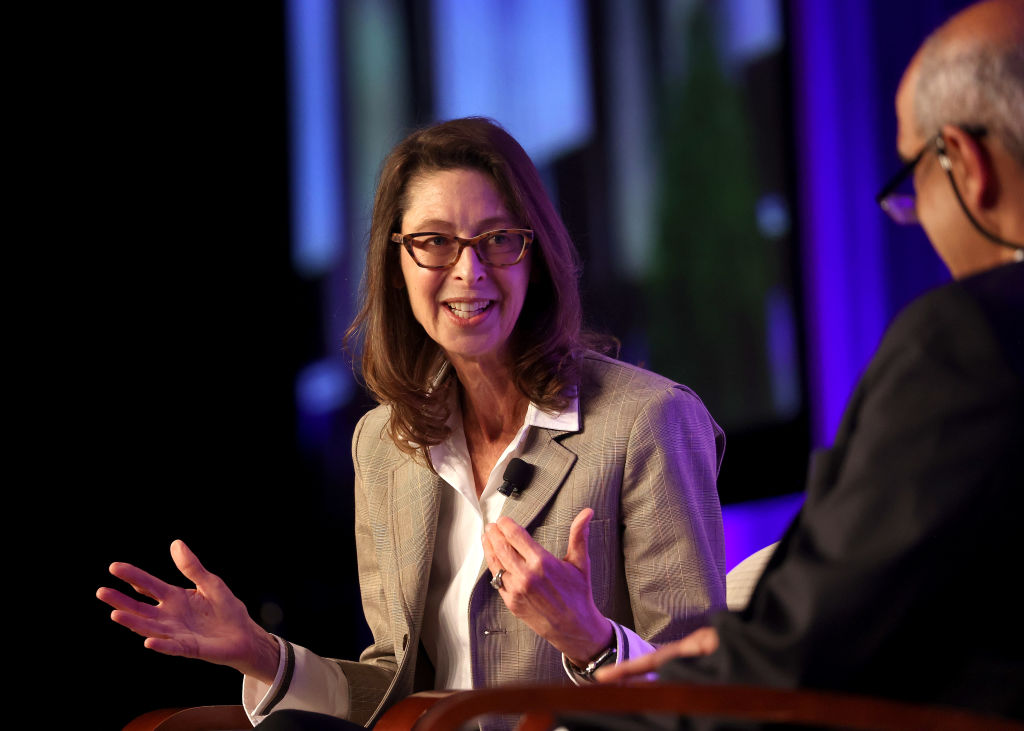- President Trump’s own tariff plan may have stacked the odds against his much-requested cut to the interest rate. According to Fed notes from a meeting ahead of Trump’s tariffs being announced, the threat of such policies was already causing the FOMC to pause. By enacting such policies in the weeks since, the White House may have sealed its own fate.
President Donald Trump has been vocal about his views on Federal Reserve policy, frequently criticizing Chairman Jerome Powell and the Federal Open Market Committee (FOMC) over interest rates, however it’s the president’s own policies that are stacking up against an interest rate cut.
Even before taking office, Trump suggested Powell’s future at the central bank could be at risk if he moved to cut rates ahead of an election. More recently, he has taken the opposite stance, telling an audience at the World Economic Forum in Davos that he would “demand” lower rates.
The Fed, however, operates as an independent entity, mandated to set monetary policy without political influence.
While the central bank considers a range of economic indicators, recent meeting notes from its January session suggest that policymakers remain focused on inflation trends and broader economic conditions rather than external pressures.
Those conditions include Trump’s trade policies, which could complicate the case for rate cuts.
According to the Fed’s minutes, officials see inflation gradually moving toward the central bank’s 2% target, but ongoing economic uncertainties may factor into future decisions on interest rates.
Contributing factors include slowing wage growth, stable long-term inflation expectations, weakening business pricing power, and the Fed’s restrictive policy stance.
Some officials also suggested that the current 4.25% to 4.5% Federal funds rate may be closer to the neutral level than previously thought—higher than Wall Street’s expected 3% baseline.
Yet members of the committee also highlighted factors “as having the potential to hinder the disinflation process, including the effects of potential changes in trade and immigration policy as well as strong consumer demand.”
“Business contacts in a number of districts had indicated that firms would attempt to pass on to consumers higher input costs arising from potential tariffs,” the notes continue.
Unfortunately for Trump, he may have sealed his fate by pushing ahead with tariff plans since the FOMC last met.
At the beginning of February, a matter of days after the FOMC sat down and aired concerns about the inflationary impact of tariffs, Trump confirmed a 10% additional tax on Chinese imports.
At the same time, economic sanctions on Mexico and Canada were also announced—each would face a 25% import hike—but these were delayed after the nations scrambled to deliver a host of concessions to avoid the threat.
Likewise , President Trump has also floated the idea of imposing tariffs on automobile, semiconductor, and pharmaceutical imports at around 25%, with an announcement coming as soon as April 2—a move that would dramatically widen the president’s trade war.
“Participants generally pointed to upside risks to the inflation outlook,” the notes added. “A couple of participants remarked that, in the period ahead, it might be especially difficult to distinguish between relatively persistent changes in inflation and more temporary changes that might be associated with the introduction of new government policies.”
Since the January meeting , the Bureau of Labor Statistics has also released a consumer price index report, which analysts said would make for “very uncomfortable” reading for the Fed. Inflation for January came in at 0.5%—a nine-month high.
The results were pushed higher particularly by the price of energy and eggs, the latter of which has soared to an all-time high. Per the St. Louis Fed, which tracks the cost of a dozen large eggs, prices have reached $4.95.
With this in mind, it’s not just the Fed, but consumers, too, who are concerned about inflation ticking higher.
Per the Federal Reserve Bank of New York’s consumer survey, year-ahead commodity price expectations rose across the board in January, increasing to 2.6% for the price of gas (+0.6 percentage points), 4.6% for the price of food (+0.6), and 6.8% for the cost of medical care (+1.0).
The employment question
With inflation dominating the economic agenda, it might be easy to forget that the FOMC has two parts to its mandate: In addition to keeping inflation at 2%, it is tasked with maintaining maximum employment.
On this count, the FOMC seems fairly optimistic. Its meeting notes read: “Participants judged that labor market conditions had remained solid and that those conditions were broadly consistent with the committee’s goal of maximum employment.”
It added: “Participants also noted that recent readings of indicators such as job vacancies, the quits rate, and labor turnover were generally consistent with stable labor market conditions.”
This outlook is welcome news against a testy inflation environment.
Economic activity—prompted by strong consumer spending and business action —is required to maintain healthy employment levels and is often aided by relatively lower interest rates.
As such, arguments against tighter monetary policy are often made in order to protect jobs and productivity. On the other hand, lower interest rates can prove inflationary.
The current environment seemingly doesn’t present Powell and the FOMC with this choice.













